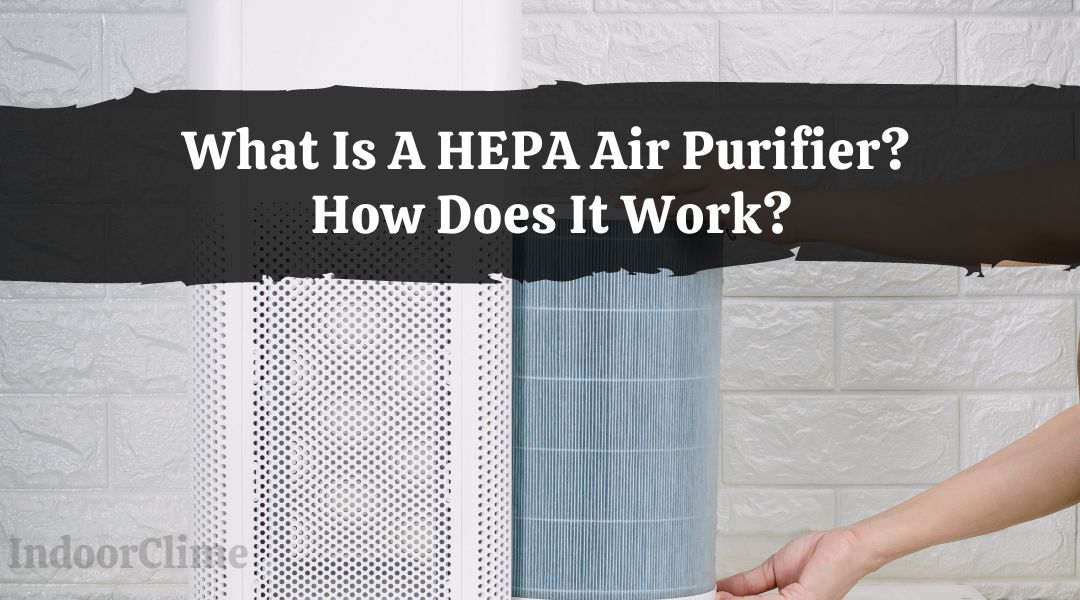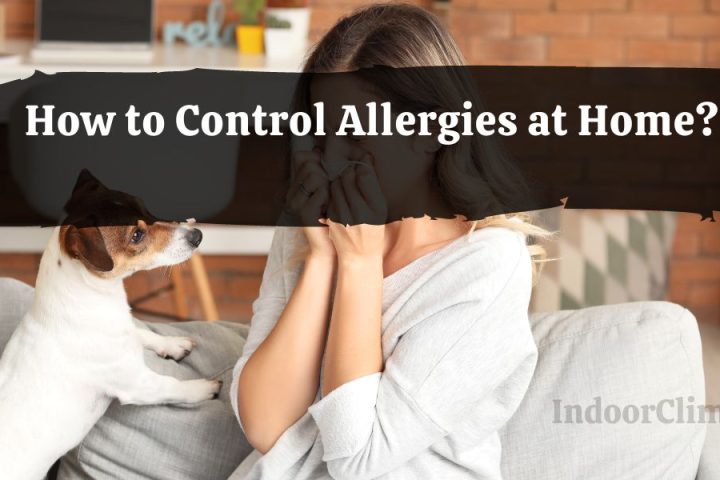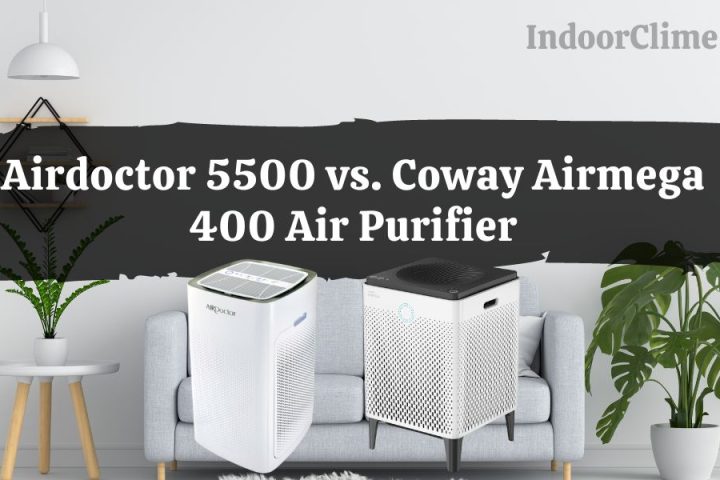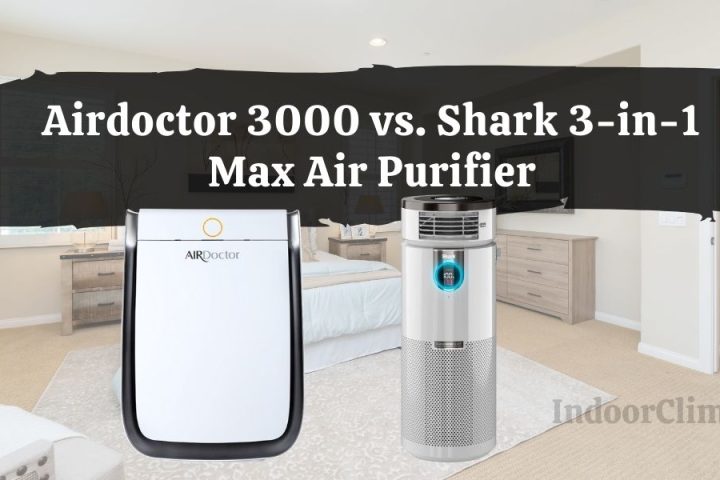One of the most popular appliances in the market is the HEPA air purifier. Most households have this air purifier to address their allergy needs.
It can remove airborne allergies like dust, pet dander, pollen, mold spores, and dust mites that can trigger allergic reactions in susceptible people.
More importantly, the common household pollutants and equally dangerous are the smoke particles, and volatile organic compounds, commonly known as VOCs, which the air purifier could also remove.
Indeed! It works just like magic! Imagine air free from all these pollutants. You won’t have to worry about any respiratory allergies or cleaning the room now and then.
What’s better with these air purifiers’ true HEPA filter units is that they can already capture bacteria and other microorganisms in the air, thus reducing their concentration and damaging your health.
So, if you plan to purchase one today or in the coming days, first know what a HEPA Air Purifier is. This is an in-depth explanation of what it is made of and how it does air purifying. You should also know the benefits of helping you decide on the best HEPA air purifier!
What Does HEPA Mean?
Most of the best-selling air purifiers online are HEPA air purifiers. We commonly see the term “HEPA” tagged along with the model name of different brands.
HEPA stands for High-Efficiency Particulate Air. It is an air filter used in several systems that need clean air, like vehicles, home filters, hospitals, and airplanes.
It is not merely a unit’s name but a qualifying product status—the filter labeled HEPA has to pass certain standards of the Department of Energy.
How Does a Unit Qualify As a HEPA Air Purifier?

Indeed, buying a HEPA air purifier is not just a small deal because it should pass government standards for a filter unit to have a HEPA label.
A filter must be able to remove 99.97% of all particles from 0.3 micrometers up.
However, being Hepa-qualified does not necessarily mean the highest standards. It’s just one of the classifications of air purifiers. These will be further sorted according to their filter capacity.
How Small Are 0.3 Micrometers?

A micrometer or commonly known as a micron is very small! It is equal to 1 millionth of a meter. Particles the naked eye cannot see this small.
This is important for HEPA filters because most allergens are of this size. They are tough to capture or filter; if they pass through the respiratory system, they may cause coughing, sneezing, and runny nose.
These are the common air contaminants in the house and their sizes.
- Human hair (70-100 microns)
- Pet dander (0.5-100 microns)
- Pollen (5-100 microns)
- Mold (2-20 microns)
- Plant Spores (6-100 microns)
- Smoke (0.01-1 micron)
- Dust mites (0.05-50 microns)
- Bacteria (0.35-10 microns).
How Does It Work?

HEPA filters are made of a mat of randomly arranged fibers. These are commonly made of fiberglass, the size of 0.5 to 2.0 micrometers. The important detail is the distance between one fiber to another. Particles are trapped in the mat of fibers through the following simple processes.
Interception: Particles usually follow a single pathway by an air stream produced by your air purifier.
Impaction: As the air stream continues to flow in and out of the machine, larger particles cannot surpass fibers; therefore, they are attached to one of the fibers. This is commonly called capturing the particles by forcing them into sticking into the fibers.
Diffusion: Molecules in the air collide with smaller gas molecules, stopping their motions.
Can HEPA Air Purifiers Kill Viruses And Bacteria?
HEPA Filters can capture not only inanimate objects but living microorganisms as well. Once they are captured, these bacteria and viruses may die. The HEPA filter is a dry environment and is not an ideal moist medium for bacterial growth.
Yes, these microorganisms can be killed. However, if the air in the filter is moist, bacteria can grow.
Advantages
Indeed HEPA air purifiers can do well in cleaning the air from common household allergens. Now, let’s see the benefits of having a HEPA air purifier at home.
If you are exposed to air pollution, this may cause several health issues like allergies and respiratory infections. Little did we know that the air inside our house is equally polluted as they’re on the outside.
Breathing air with many pollutants can cause aggravation of present conditions. Respiratory or not, inflammation can happen because of these particles. You should have an air purifier if you have one of these persons:
- If you’re concerned about having the healthiest home possible.
- If you want a pet but are afraid of the allergies pet dander may cause.
- If you already have asthma and allergies with many recurrent attacks.
- If you want to remove smoke and other common household odors that have long been lurking in your home.
- Found yourself in any of these situations? You should think about buying one.
Disadvantages
However, there are some customer concerns about having a HEPA air purifier. Some machines have gaseous by-products that can be hazardous to your health.
Also, most customers complain about the noise level, frequency, expense of changing the filters, electrical energy consumption, and visual appeal.
To resolve these possible concerns, you can read well customer reviews regarding the product you buy.
You can also call the company’s customer service to know the noise level (in decibels), for example, to prepare you for what to expect in a product. Several HEPA filter purifiers can last 3-5 years; some are permanent. What’s important is that you clean your units regularly.





